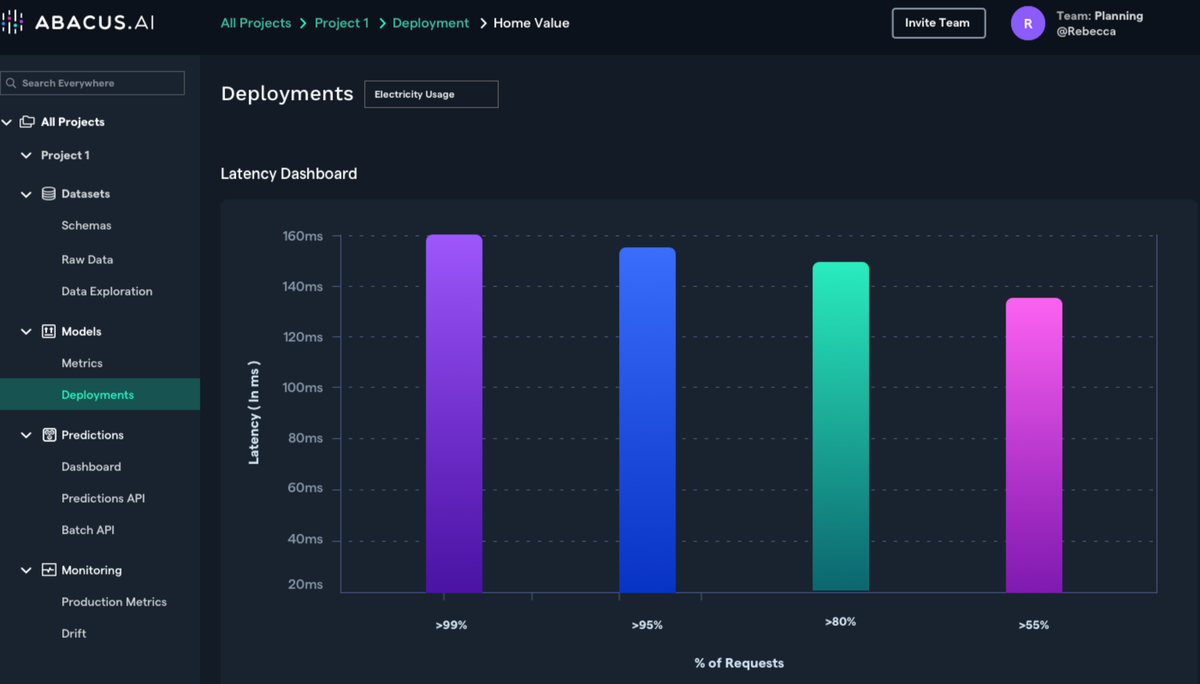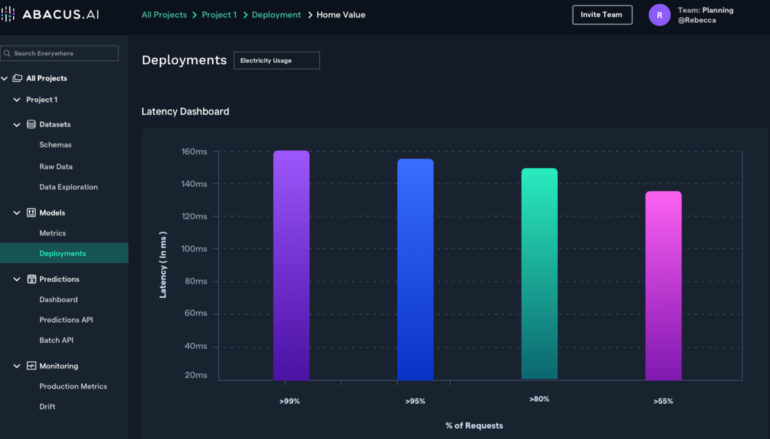Abacus.ai, the two-year-old San Francisco-based startup that is building commercial AI systems, on Friday announced it is has turned on an API listening service that will feed real-time data into machine learning models for tasks such as predictions.
Abacus had already come to market with a form of auto-ML, a way automate deep learning model building for customers. The company has amassed over 6,000 customers that have used over 20,000 models.
Previously, that service was confined to the automatic models that Abacus would offer. Now, the service will take any TensorFlow or Pytorch model that a customer brings and plug that into what the company calls an “end-to-end, real-time deep learning system.”
Also: AI startup Abacus.ai nabs $22 million in Series B funding to automate creation of deep learning models
CEO and co-founder Bindu Reddy told ZDNet the software is “the only service that you can use to quickly stand-up a real-time deep learning system.”
The system comprises modules developed by Abacus.ai that provide for the ingestion of data in a streaming fashion, as well as what is called vector matching. Vector matching is similar to a Google service called ScaNN that can match queries to related content by computing a similarity feature.
Abacus.ai has developed its own vector matching engine. In contrast to ScaNN, which does not come with the ingestion of real-time data, that capability is “turn-key” when using Abacus.ai’s version of vector matching, said Reddy.

The Abacus.ai vector matching engine dashboard.
Abacus.ai
An application of the technology could be something such as a recommender service. Rather than retrieving a static set of recommendations that have been compiled for a given user, the Abacus.ai system can ingest in a window of time, perhaps every two hours, the individual items the user has recently “liked,” and process those to come up with new recommendations.
Reddy told ZDNet the models deployed for recommendations and other functions are continually re-trained in a kind of continuous learning application.
“The re-training happens based on how often your data changes,” said Reddy. “For example in the case of newsfeed algorithms, we expect enough new posts to be created very often, so we re-train every few minutes.
Alongside its commercial work, Abacus.ai does fundamental work on the science of deep learning to advance its tools. For example, the company took second place this year the Computer Vision and Pattern Recognition conference’s neural architecture search competition.
Abacus.ai has received $40.5 million in funding to date, most recently with a Series B round led by venture capital firm Coatue, in November. Other investors include Index Partners, which participated in a Series A investment round totaling $13 million in July, Decibel Ventures, an investment from former Google CEO Eric Schmidt, investor and former Amazon executive Ram Shriram, and Yahoo! co-founder and onetime CEO Jerry Yang.
The company currently employs 45 people.


Abacus co-founders, from left, Siddartha Naidu, previously a principal engineer for Amazon’s fulfillment team and also a developer of the BigQuery software at Google; Bindu Reddy, previously head of “AI Verticals” for Amazon’s AWS; and Arvind Sundararajan, previously engineering lead for Google’s ad delivery technology.
Abacus



